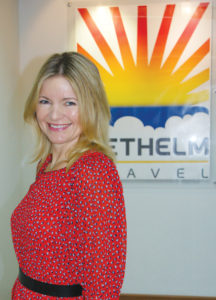
Lisa Fitzell
Travel agents that are able to cater to the ever-evolving needs of their customers and offer specialised, integrated online and offline services, will continue to be well sought after despite growing competition.
They first need to recognise their need as subject matter experts rather than a sales channel, said members of the trade interviewed by TTG Asia, so that they don’t compete in the same space as OTAs or metasearchers.
“Reservations by travel agents account for over two-thirds of all SLH (Small Luxury Hotels of the World) bookings,” said Mark Wong, the group’s vice president Asia Pacific.
“Many of our luxury resorts and country houses are not located at point-to-point destinations. Therefore, our guests need more assistance with planning.”
Wong attributes the value of agents to their luxury clientele who are mostly “cash-rich, but time-poor”. “Trusted travel agents provide a one-stop service that will assure customers of hassle-free trip planning and experienced travel advice, pre- and post-trip,” he explained.
According to an Amadeus study released last week, traditional travel agents still account for a large proportion of global travel sales. For instance, 80 per cent of Chinese travellers booked via an offline agent last year, stated the Chinese Outbound Tourism Research Institute.
The report added that successful travel agencies have a virtual presence to help customers discover them. Personalised, expert service by consultants should then follow, providing a human touch and sealing the deal. The success of such a hybrid approach is also evident in some OTAs opening call-centres and brick-and-mortar stores.
In the study, Claude Blanc, CEO of Travel & Co, surmised: “We work on a research online, purchase offline model. We have websites and a limited social media presence, but most customers like to talk to our experts via the call-centres.”
Dynasty Travel is one agency forging ahead with a hybrid approach. They had in July this year launched a Mobile Concierge service where agents travelled to meet clients at a venue of their choosing. This marks the first time a full-service agency is offering this in Singapore, said spokesperson Alicia Seah.
Using technology to aid the know-how of agents is favoured by DMC Diethelm Travel as well. Managing director Lisa Fitzell said they are “developing technologies to reinvent our business”, such as APIs that connect directly to their agents’ systems.
“Technology has changed the landscape of travel… but DMCs create packages – we design itineraries that create amazing memories that can’t be purchased online,” she commented.
Moreover, Vijay Sharma, country director Singapore & Malaysia of Club Med, which works through a “big network of agents”, highlighted the need for travel agents especially in the luxury and family segments. He said: “Travel agents are a strategic priority for Club Med due to their customer reach and ability to sell upscale products.
“Families are almost 70 per cent of our clientele (as) we cater to children’s needs as much as adults in terms of food, entertainment and activities. Travel agents play a role in advising the right resort to families depending on their wish list.”
Sharma added that he prefers offline agents as the level of engagement offered through OTAs is very low.
Similarly, Fitzell said: “The online space is cluttered and the consumer is looking for expertise (and personalisation). Agencies will… focus more on being destination specialists and (serve) segments such as luxury, adventure and weddings.”




















